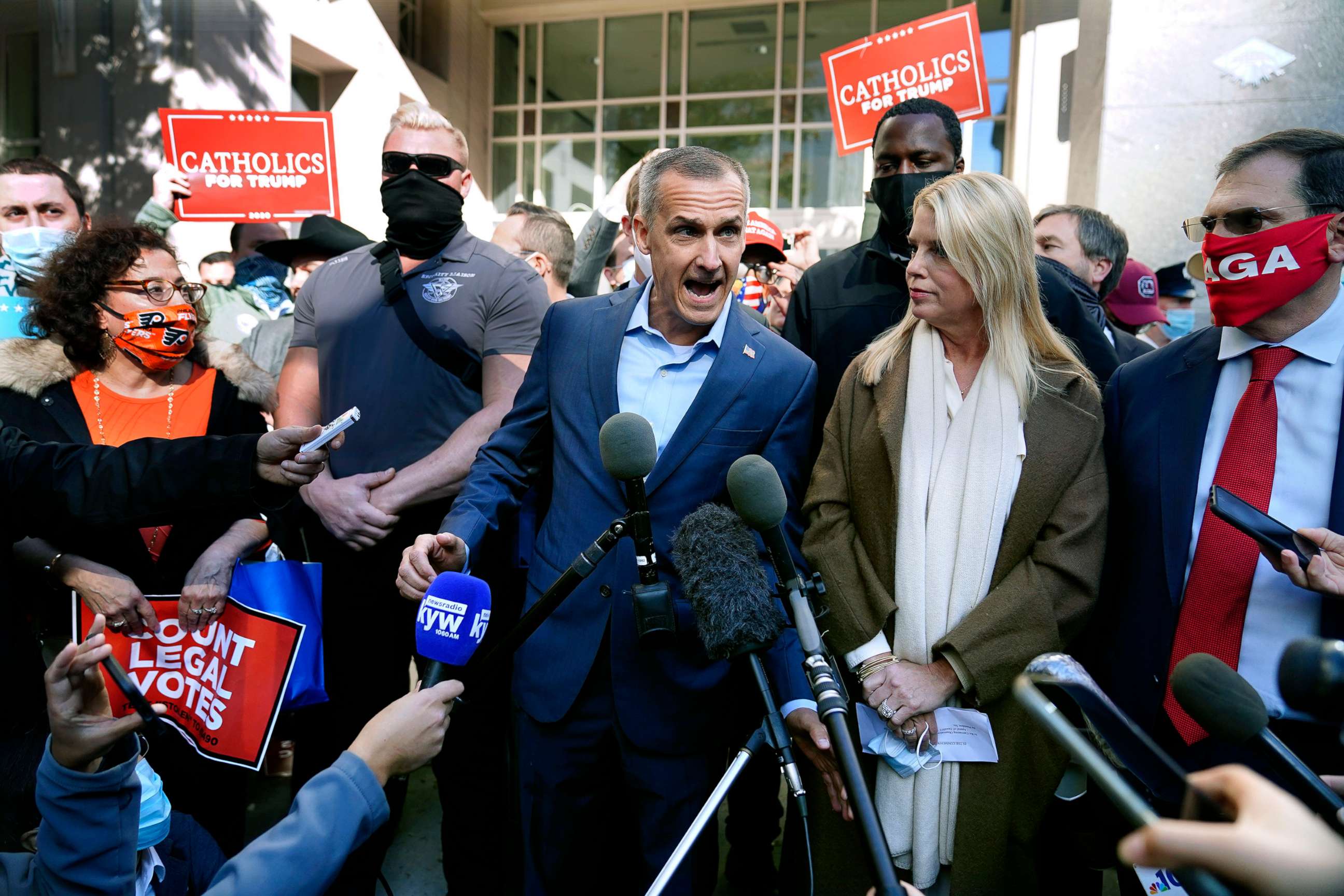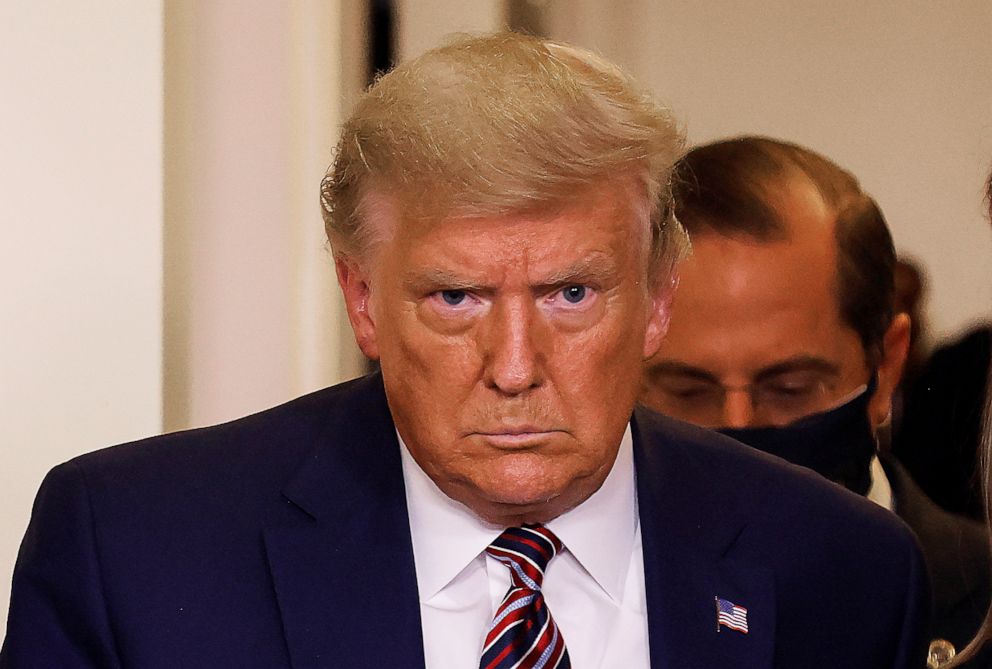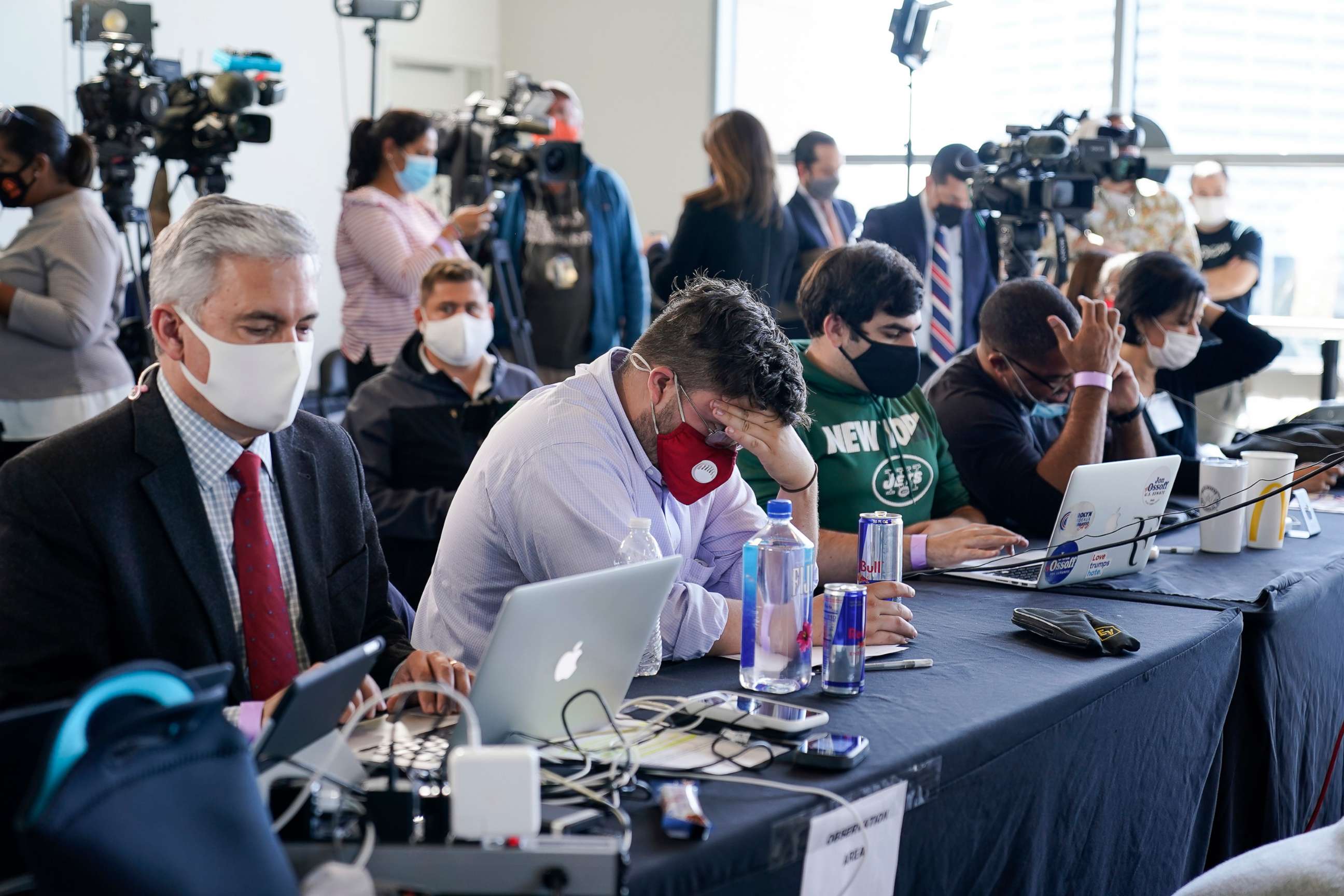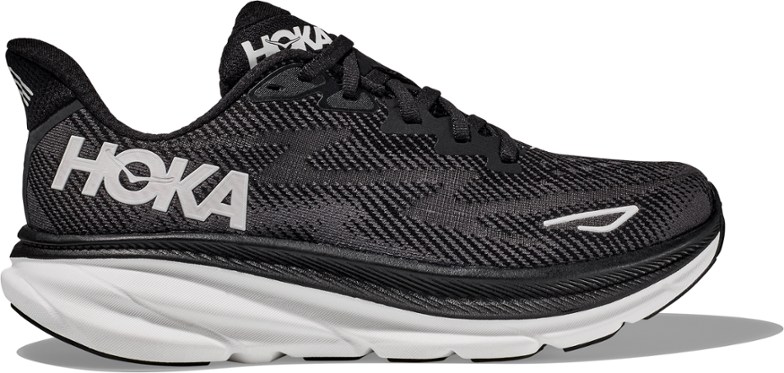Election 2020: A look at Trump campaign election lawsuits and where they stand
In the days and weeks following the 2020 election, the Trump campaign has been filing lawsuits in battleground states where the race has been extremely close.
Here's a rundown of where the legal action stands.
PENNSYLVANIA
The Trump campaign and its legal team have pursued several legal actions in the Keystone State, where President-elect Joe Biden won by over 81,000 votes.
Philadelphia County canvassing observation
Status: Denied
On Nov. 4, the day after Election Day, the campaign filed a lawsuit alleging that observers were not allowed to "meaningfully" watch the vote count in Philadelphia County. A Pennsylvania judge on Nov. 5 granted the Trump campaign's request to observe Philadelphia poll workers as they process the remaining mail-in ballots.
The city of Philadelphia promptly filed an appeal to the state Supreme Court to overturn the decision.
On Nov. 17, the Pennsylvania Supreme Court rejected the Trump campaign's claim that election officials had failed to provide campaign observers "meaningful" access. The court, on a vote of 5-2, found that election officials followed the law in providing the Trump campaign sufficient access to the workers who were opening mail-in ballots. Pennsylvania simply has no requirements that say how close the observers need to be placed to watch the process, the court found.
Trump campaign v. Philadelphia County Board of Elections
Status: Denied
Alleging that its poll watchers were not being allowed to properly observe the vote count, as previously granted, the Trump campaign filed a federal lawsuit the evening of Nov. 5 intending to stop the Philadelphia vote count. A judge ultimately denied this request.
Trump campaign v. Kathy Boockvar and County Boards of Elections
Status: Order granted
The Trump campaign filed a lawsuit in state court on Nov. 5 alleging that Pennsylvania Secretary of State Kathy Boockvar illegally extended a deadline for mail-in voters to supply any missing ID requirements from Nov. 9 to Nov. 12. A judge ordered the Pennsylvania State Department to further segregate any mail-in ballots with missing voter ID information provided after Nov. 9. In a rare legal win for the Trump campaign, on Nov. 12, an appellate judge ruled that Boockvar lacked the authority to issue guidance to change the deadline, and enjoined the state's boards of elections from counting any ballots that have been segregated.
Trump campaign v. Montgomery County Board of Elections
Status: Denied
On Nov. 5, the Trump campaign filed a petition in Montgomery County seeking to invalidate nearly 600 absentee and mail-in ballots that lacked complete address information. On Nov. 13, a judge denied the petition, noting that the ballot instructions do not inform the voter that their address is required or that its omission will invalidate their ballot. The campaign subsequently filed, and then withdrew, an appeal.

Republican Party of Pennsylvania v. Kathy Boockvar, Secretary of Pennsylvania
Status: In court
On Nov. 4, the campaign's legal team filed a motion to join a pending lawsuit brought by the Pennsylvania GOP seeking to challenge a three-day mail ballot deadline extension that the U.S. Supreme Court upheld late last month.
In response, Pennsylvania Democrats and Boockvar asked the Supreme Court to deny Trump's request to formally join the case. In a filing the evening of Nov. 5, Boockvar argued that Trump has not provided any justification for being added at this stage.
On Nov. 6, U.S. Supreme Court Justice Samuel Alito issued an order requiring that all Pennsylvania county boards of election segregate late-arriving mail ballots, pending further order from the high court.
On Nov. 7, Pennsylvania Attorney General Josh Shapiro informed the U.S. Supreme Court that, contrary to Republicans' stated concerns, all of the state's counties have been complying with the Pennsylvania secretary of state's guidance to segregate late-arriving mail ballots. The move seemed to suggest that Alito's order late Friday was not necessary since the counties were already doing the segregation.
Cases in Philadelphia, Bucks and Montgomery counties
Status: Denied, dismissed
On Nov. 11, the Trump campaign filed six new cases in Pennsylvania. Five were brought in Philadelphia County and asked a judge to throw out more than 8,000 ballots they said meet technical deficiencies, such as missing street addresses or no date next to the signature. Each case focused on a different category of ballot that the county agreed to count. A sixth case, filed in nearby Bucks County, asked the court to toss out 2,880 ballots that they argued are invalid due to late arrival and other defects.
On Nov. 13, a judge denied all five of the Philadelphia County lawsuits, affirming the count of a total of 8,329 absentee and mail-in ballots.
On Nov. 19, a judge in the Philadelphia suburb of Bucks County dismissed the campaign's lawsuit that had sought to toss out 2,177 ballots over missing words on the address line or improperly sealed secrecy envelopes. Judge Robert O. Baldi said it would be "an injustice to disenfranchise these voters" based on the technical errors with the ballots. Baldi noted repeatedly that the Trump team "specifically stipulated" that "there exists no evidence of any fraud, misconduct, or any impropriety with respect to the challenged ballots."
"The minor irregularity of a lack of a complete handwritten name or address is not necessary to prevent fraud and there would be no other significant interest undermined by allowing these ballots to be counted," Baldi wrote.
On Dec. 8, the Pennsylvania Supreme Court refused to hear an appeal by the Trump campaign over the Bucks County ballots.
Trump campaign et al v. Kathy Boockvar et al
Status: Dismissed, upheld by appeal
On Nov. 9, the Trump campaign filed a catchall lawsuit in U.S. District Court in Pennsylvania asking the court to prohibit the state from certifying the election -- or at least the over 680,000 mail-in ballots cast in Pennsylvania -- two days after Biden became the apparent winner of Pennsylvania -- and, as a result, the apparent president-elect.
The lawsuit focused on the mail-in ballots processed in the Democratic-leaning counties of Allegheny and Philadelphia, and argues that Boockvar "created an illegal two-tiered voting system" that subjected in-person voters to "greater burdens or scrutiny" than those who voted by mail.
A contingent of the nation's largest public interest and civil rights groups on Nov. 10 asked a U.S. District Court judge to allow them to join the state of Pennsylvania in fighting the Trump campaign's latest lawsuit. The American Civil Liberties Union, the NAACP, the League of Women Voters and Common Cause were among the groups saying they represent some 50,000 voters who cast ballots by mail.
In opening arguments Nov. 17 in a Philadelphia federal court, Giuliani alleged that a systematic effort by the "Democratic machine" in Philadelphia and Allegheny Counties served to deny poll watchers the chance to observe the vote counting up close, with the result that "1.5 million votes were entered illegally" -- "way more than enough to overturn the results of the election," Giuliani said.
Longtime Democratic Party attorney Mark Aronchick argued that the Trump campaign provided "no specifics," saying of their amended complaint, "There are no numbers in here." But Trump campaign attorney Linda Kerns argued that the Pennsylvania Secretary of State had created two separate, unequal sets of voting rules across the commonwealth, which violates the constitutional right to have all votes counted equally. Judge Matthew Brann, an Obama appointee but a longtime Republican, concluded the hearing without a ruling to dismiss the case, and allowed the Trump campaign to file a second amended complaint the following day.

On Nov. 21, a federal judge dismissed the lawsuit. Brann wrote that he would not "disenfranchise almost seven million voters," as the Trump campaign had sought.
The Trump campaign appealed to the Third Circuit Court of Appeals, where it was rejected on Nov. 27.
"Free, fair elections are the lifeblood of our democracy," said the unanimous opinion from a three-judge panel, which was signed by Judge Stephanos Bibas. "Charges of unfairness are serious. But calling an election unfair does not make it so. Charges require specific allegations and then proof. We have neither here."
GEORGIA
Chatham County case
Status: Dismissed
The Trump campaign filed a lawsuit along with the Georgia Republican Party on Nov. 4 in Chatham County seeking to order the county to compile, store and account for all ballots received after the state's deadline of 7 p.m. on Election Day.

Chatham County Judge James Bass dismissed the suit during a hearing on the following morning, citing a lack of evidence that the ballots referenced in the petition were received after the deadline.
Trump v. Brad Raffensperger et. al.
Status: Open
Trump filed a lawsuit the Superior Court of Fulton County on Dec. 4, officially contesting the results of the election and requesting a do-over. The suit alleges that the state's election code was "disregarded, abandoned, ignored, altered, and otherwise violated," thereby allowing "a sufficient number of illegal votes to be included."
MICHIGAN
Trump campaign v. Michigan Secretary of State Jocelyn Benson
Status: Denied; appeals denied
On Nov. 4, the Trump campaign filed a lawsuit in state court asking that vote counting stop until courts can enforce rules that permit campaign observers to watch the ballots being opened and counted. The campaign alleged that poll watchers were being denied close-up access to observe vote counting at locations in Detroit.
A judge in Michigan said that afternoon that she would deny the plea, largely on the basis that the counting there is already largely done.
On Nov. 6, Judge Cynthia Stephens issued her formal order denying the Trump campaign's request to halt counting in Wayne County, which includes Detroit, specifically citing the lack of evidence and detail provided by the campaign.
"As stated on the record at the November 5, 2020 hearing, plaintiffs are not entitled to the extraordinary form of emergency relief they have requested," she wrote.
That day, the campaign filed an appeal in the Michigan Court of Appeals, which the court did not accept, calling it "defective" because it lacked key documents. The campaign filed a supporting brief on Nov. 30.
On Dec. 4, the court rejected the campaign's application for an appeal, finding it "moot" because the vote was already certified on Nov. 17.
Three days later, the campaign filed an appeal to the Michigan Supreme Court. The court denied the appeal on Dec. 11, with the judges writing that they were "not persuaded that the questions presented should be reviewed by this Court."
Trump campaign v. Michigan Secretary of State Jocelyn Benson, Michigan Board of State Canvassers et al
Status: Withdrawn by campaign
On Nov. 10, the Trump campaign filed a new lawsuit seeking to halt the certification of election results in Michigan until the campaign can ensure it was fair. It included affidavits from over 100 polls challengers who alleged instances of fraud across the state. Many of these had already been publicly debunked by state officials.
On Nov. 19, the Trump campaign announced it had voluntarily withdrawn its lawsuit, "as a direct result of achieving the relief we sought: to stop the election in Wayne County from being prematurely certified before residents can be assured that every legal vote has been counted and every illegal vote has not been counted," Trump attorney Rudy Giuliani said in a statement.
The decision came after the two Republican members of Wayne County's four-person board of canvassers filed affidavits seeking to rescind their votes to certify the county's election results, a day after they had voted to approve the certification. Michigan Secretary of State Jocelyn Benson subsequently confirmed plans for a statewide risk-limiting audit of the election and local performance audits of individual jurisdictions.
ARIZONA
Aguilera v. Fontes
Status: Dropped
The Trump campaign and Republican National Committee filed a motion Nov. 5 to intervene in an Arizona lawsuit that raises issues with the use of Sharpies on ballots in Maricopa County and other regions of the state. The case was brought by a woman who claims that a voting machine failed to properly read her vote after she was provided a Sharpie to fill out her ballot at her polling place.
A judge ordered parties in the case to decide on a path forward and present it to her on Nov. 6.
The plaintiffs dropped the lawsuit without prejudice the following day, court records show. The Arizona secretary of state and Maricopa County elections officials have repeatedly said that Sharpies do not pose an issue for the tabulation equipment.
Trump campaign v. Hobbs
Status: Dismissed as moot
In a new lawsuit on Nov. 7, the Trump campaign and the Republican National Committee alleged that votes were improperly rejected, bringing up similar issues as the dismissed Sharpie lawsuit. They claimed that "potentially thousands of voters across Maricopa County were disenfranchised by systematic improper tabulator overrides."
On Nov. 13, the campaign dropped the suit after it was determined that the number of votes in question wouldn't be enough to affect the state's results.
NEVADA
Jill Stokke et. al. v. Secretary of State Barbara Cegavske and Clark County Registrar of Voters Joseph P. Gloria
Status: Denied
On Nov. 5, the Trump campaign announced it was filing a lawsuit in federal court in Clark County over voter fraud. The lawsuit, filed later that day by Nevada GOP groups, alleged that "lax procedures for authenticating mail-in ballots over 3,000 instances of ineligible individuals casting ballots."
The lawsuit sought injunctive relief directing poll workers to manually check all ballot signatures and to allow for "meaningful access" to ballot counting.
A Nevada district court judge denied the emergency request on Nov. 6. Judge James Gordon said he didn't think the plaintiffs came to the court with "sufficient evidence" to get what is required of the "extraordinary relief of an injunction" that would get him to "dictate how Clark County should do their job."
WISCONSIN
Trump et. al. v. Biden et. al.
Status: Denied; appeal denied
On Dec. 1, Trump's reelection campaign filed a petition to the Wisconsin Supreme Court, challenging the outcome of the presidential election that was certified the day before.
The petition alleges that poll workers illegally altered ballot envelopes, added missing information on voters' behalf, counted ballots submitted early without sufficient voter identification or collected ballots at unauthorized locations. In all, the Trump campaign claims that more than 200,000 votes were improperly counted. Trump lost the state to Democrat Joe Biden by more than 20,600 votes.
On Dec. 3, the court voted 4-3 against hearing the recount appeal on procedural grounds, ruling that the campaign needed to first try and resolve their dispute with election officials in circuit court. The campaign subsequently filed new lawsuits in Dane and Milwaukee County circuit courts, which were consolidated.
The Milwaukee County Circuit Court denied the campaign's challenge on Dec. 11. Judge Stephen Simanek noted the campaign made "no allegations of widespread fraud," nor was any evidenced submitted that could support such claims.
The Trump campaign's appeal of the decision to the Wisconsin Supreme Court was rejected. "This Court has allowed plaintiff the chance to make his case and he has lost on the merits," U.S. District Court Judge Brett H. Ludwig, a Trump appointee, wrote on Dec. 12. Ludwig noted that the president had asked "that the Rule of Law be followed," and he declared in response: "It has been."
Trump v. The Wisconsin Elections Commission et al
Status: Open
The campaign filed a federal lawsuit on Dec. 2, which called on the courts to respond within 48 hours to the case, which takes exception to the broad availability of mail-in voting for the state's residents -- latitude granted because of the risks associated with the coronavirus pandemic.
TEXAS
State of Texas v. Commonwealth of Pennsylvania, State of Georgia, State of Michigan and State of Wisconsin
Status: Denied
President Trump filed a motion with the U.S. Supreme Court on Dec. 9 asking to formally join a lawsuit filed by the Texas attorney general that alleges four battleground states "exploited the COVID-19 pandemic" to improperly loosen election rules and skew the contest's outcome.
On Dec. 11, the court denied Texas' request to file the lawsuit, citing lack of standing.
ABC News' Devin Dwyer, Cheyenne Haslett, Alex Hosenball, Kendall Karson, Adam Kelsey, Soo Rin Kim, Allison Pecorin, Olivia Rubin, Benjamin Siegel, Matthew Mosk, John Santucci, Michelle Mendez and Matthew Fuhrman contributed to this report.





